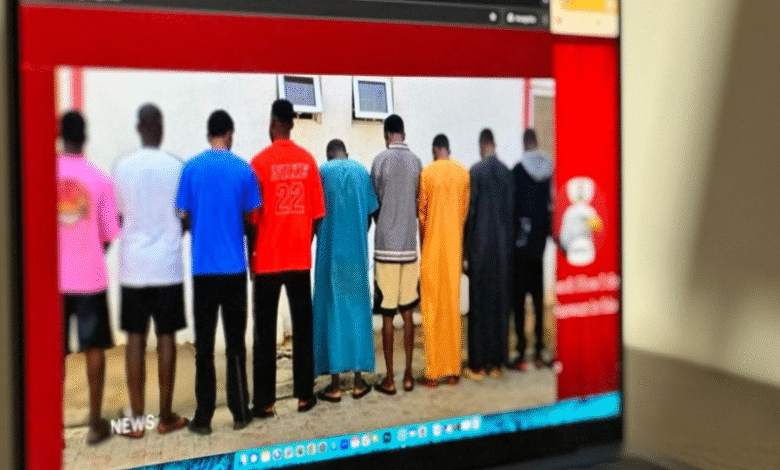Nigeria’s Cybercrime Crackdown: 13 University Students Arrested in Latest EFCC Raid

Thirteen students from Usmanu Danfodio University in Sokoto, northwestern Nigeria, have been arrested in a sweeping crackdown by the Economic and Financial Crimes Commission (EFCC) targeting cybercrime. The arrests, which took place over the weekend, came after authorities acted on intelligence linking the students to internet-related offenses.
This is the latest chapter in Nigeria’s ongoing battle against cyber fraud, a crime that has plagued the country for decades and gained international notoriety. From the infamous “Nigerian prince” email scams of the 1990s to today’s more sophisticated cyber schemes, fraud has evolved—but it hasn’t gone away.
A New Generation of Fraud Schemes
While the fake royal emails still circulate, young Nigerians are now more often involved in complex scams like romance fraud, where con artists build fake relationships online to trick victims into sending money. In another prevalent scam, Business Email Compromise (BEC)—also known as CEO fraud—criminals infiltrate company systems and impersonate executives, convincing employees or clients to transfer large sums to fraudulent accounts.
Other tactics include:
•Phishing emails and fake greeting cards
•Lottery and loan scams
•Identity theft and social media profile cloning
•Elaborate web pranks and even high-tech disaster fraud
According to cybercrime experts, these scams are constantly evolving, and so are the tactics used by law enforcement to track them down.
Mounting Concerns Over EFCC Raids
The EFCC’s aggressive approach has sparked controversy, especially among students and civil rights groups. Just days before the Sokoto arrests, a student from the Federal University of Minna (@violawiz) posted on X (formerly Twitter) that EFCC operatives raided off-campus student lodges, allegedly detaining students on the eve of exams and taking them to an undisclosed location. “We’re living in a jungle,” he wrote.
This is not an isolated incident. Last year, 70 students from Obafemi Awolowo University were arrested in a similar midnight raid. In protest, some students carried signs saying, “I am a medical student, not a Yahoo Boy” and “Criminals trying to arrest criminals.”
And in February, 48 students from Kwara State University (KWASU) were detained over similar allegations.
Why Are So Many Young Nigerians Turning to Cybercrime?
Nigeria’s cybercrime epidemic is fueled, in part, by a grim economic reality. With youth unemployment at a staggering 53%, according to the National Bureau of Statistics, many young people see online fraud as the fastest way to financial stability.
Chubby Reuben, a member of the Human Rights Writers Association of Nigeria, told OCCRP that the growing allure of internet fraud among Nigerian youth is a symptom of deeper systemic issues. “It’s drawing the energy and potential of young people into illegal activities,” he said, warning that this trend poses a serious threat to national development.
Nigeria, Africa’s most populous country with over 151 million young people, continues to rely on international partnerships for employment strategies, but widespread corruption remains a major roadblock to meaningful reform.
Conclusion
The EFCC’s fight against cybercrime is far from over—but it remains controversial. As authorities ramp up arrests, the debate continues over how to balance justice with fairness, and how to tackle the root causes of the problem: poverty, unemployment, and lack of opportunity.
Until those issues are addressed, the cycle of fraud and crackdowns is likely to continue.




